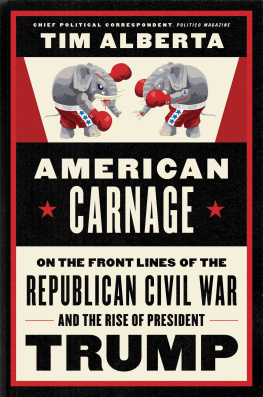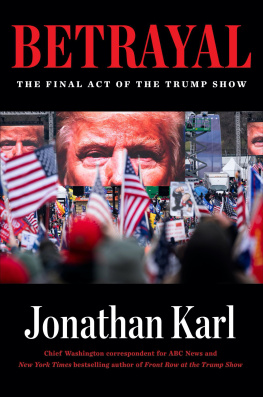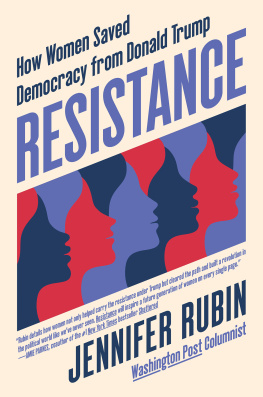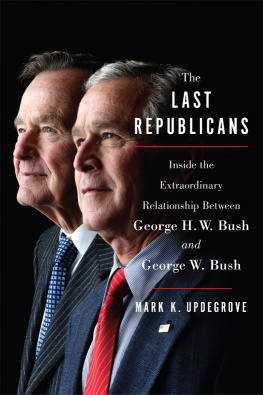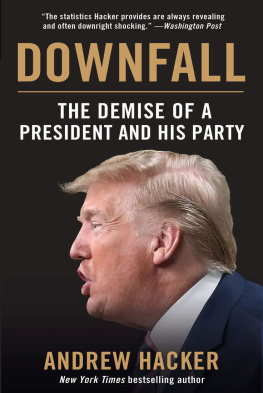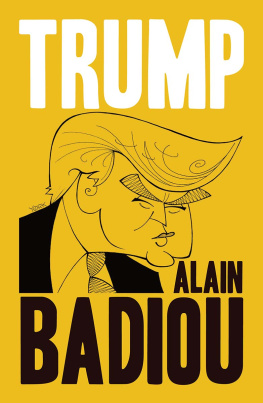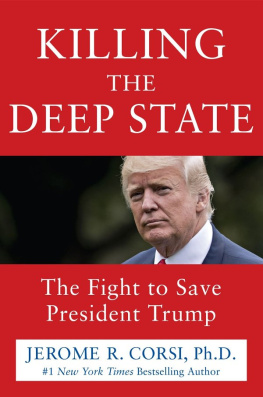To Abraham and Lewis and Brooks:
Reject false choices. Think for yourselves.
Ambition must be made to counteract ambition. The interest of the man must be connected with the constitutional rights of the place. It may be a reflection on human nature, that such devices should be necessary to control the abuses of government. But what is government itself, but the greatest of all reflections on human nature? If men were angels, no government would be necessary. If angels were to govern men, neither external nor internal controls on government would be necessary. In framing a government which is to be administered by men over men, the great difficulty lies in this: you must first enable the government to control the governed; and in the next place oblige it to control itself.
JAMES MADISON, FEDERALIST , NO . 51
Contents
H OW DID D ONALD T RUMP BECOME PRESIDENT OF THE U NITED S TATES ?
Since the early morning hours of November 9, 2016, game attempts to solve this riddle have been subject to the same disorienting forces that came to define his political ascent: ideological bias and tribal loyalty, social alienation and demographic transition, institutional breakdown and political polarization.
There is a temptation not only to associate these things with Trump, but to blame him for the havoc they hath wrought on America and the world. Throughout his campaign for the presidency and in his first two years in office, Trump defied every law of gravity while shattering societal conventions that will prove difficult to repair. In so doing, he nurtured narratives of his own centrality to a bruising reconfiguration of modern American life.
Trailblazing as he might be, Trump is not the creator of this era of national disruption. Rather, he is its most manifest consequence.
I N PRESIDENTIAL POLITICS, THE CANDIDATE MUST MEET THE MOMENT . Barack Obama could not have won the White House with his dovish foreign policy platform in 2004, an election decided on the question of whom Americans wanted as their wartime president. It was not until 2008, with the country weary from intervention, and his heavily favored Democratic rival tainted with a vote for the Iraq invasion, that the electorate was primed for his candidacy.
Similarly, Trumps appeals to Americas darker impulses would have fallen flat in 2000. The nation was too peaceful, too prosperous, too cohesive. All throughout history the world over, efforts to exploit anxiety have succeeded when there is anxiety to be found: times of war, financial despair, national disunity. The United States circa 2000 did not fit the bill. Even after winning the most disputed race in presidential history, with a grueling thirty-six-day Florida recount splintering the nation before the Supreme Court intervened on his behalf, George W. Bush entered office with a 57 percent approval ratinghigher than the incoming marks of both his father, George H. W. Bush, and the previous Republican president, Ronald Reagan.
Eight years later, the scenery had changed. The country was trapped in two deeply unpopular military conflicts. It was shedding jobs at an alarming rate, particularly in the manufacturing hubs of middle America. And its electorate was increasingly bifurcated, with partisans estranged from one another not just ideologically but geographically and culturally as well.
Into this breach stepped Obama. He promised to heal these wounds, to reject the labels of red states and blue states and unify the country. It would prove an impossible task.
T O UNDERSTAND T RUMPISM IS TO UNDERSTAND THE DRAMATIC NATIONAL makeover of the previous ten years. When Obama was sworn in as president in January 2009, he opposed same-sex marriage. Facebook lagged behind MySpace in monthly Web traffic. Brad Pitt and Angelina Jolie were the most famous couple on earth. Airbnb had just launched its website. Tiger Woods was the worlds most dominant athlete. Uber did not exist. Nobody had heard of the word gluten. The Twitter account @realDonaldTrump had not yet been created.
The ensuing decade saw a convergence of phenomenaeconomic displacement, technological innovation, civic upheavalthat fundamentally reshaped our politics. And nowhere was that change felt more acutely than inside the Republican Party.
Having moved to Washington in the twilight of Bushs presidency, I found myself less fascinated by Obama and his incoming Democratic government than by the power vacuum in the GOP. Bush was leaving office with record-low approval and Republicans were headed into the wilderness. There was no vision, no new generation of leaders, no energy in the conservative base. One of Americas two major parties had gone politically bankrupt.
In the ten years since, covering Congress and campaigns, I have interviewed more than a dozen Republican presidential candidates, scores of GOP congressmen and senators and governors, hundreds of party activists and strategists, and countless voters all across the country.
I watched as the Republican Congress went to war with Obama; as the Tea Party rebranded the American right; as platoons of insurgent lawmakers came to Washington intent on its demolition; as the government was shuttered and pushed to the brink of default; as a group of renegades established themselves as an effective veto threat over their own party; and as the mutiny overthrew the most powerful man in the GOP, having already swallowed up his heir apparent.
A wave of revolution was cresting in the Republican Party. The only question was who would ride it.
T HE NARRATIVE I AM SETTING FORTH IN THESE PAGES IS NOT MEANT TO be comprehensive. What I have attempted to construct is an account guided by my own coverage of what, until the spring of 2016, was commonly known as the Republican civil war, as told through the eyes of the combatants on the front lines.
Although this project was conceived in the middle of 2016, it was not until early 2018 that I began researching and reporting the new material that would form this books foundation. In the year since, I have interviewed more than three hundred people specifically for the purposes of this recounting. Those interviews, joined with my work over the previous decade, comprise the spine of the story you are about to read.
Wherever I have drawn from other sources of information, proper attribution and/or citation is provided.
Everything else is rooted in my own reporting. Most of the interviews were conducted on the record; any quote that appears in the present tense (says) is drawn from original reporting, as are the past-tense quotes (said) that do not include outside attribution.
This book is fashioned not as a traditional work of journalism, but as a storytelling narrative. Portions of some interviews were conducted on deep background, giving me license to use the material but not attribute the source. In those instances, the only reporting I present in these pages is taken from sources with firsthand knowledge of the events and conversations in question.
At a time when truth is under attack, I have labored to verify every quote, story, and circumstance down to the smallest detail. In addition to hundreds of hours of taped interviews, I have also drawn from emails, audio files, contemporaneous memos, and other private records provided by sources whose identities I agreed to safeguard.
It is my hope that by reading this account of the political and cultural turbulence that rattled the nation during the first two decades of the twenty-first century, you will gain a more textured understanding of Donald Trumps rise to the presidencyand of its implications for America.
TIM ALBERTA
January 2019
T HE R ESOLUTE DESK IS CLEAN AND UNCLUTTERED, ITS WALNUT VENEER glimmering as rays of late afternoon sun dart between the regal golden curtains and irradiate the Oval Office. There are two black telephones situated at the presidents left elbow, one line for everyday communications within the White House and the other for secured calls with the likes of military leaders, intelligence officials, and fellow heads of state. There is a small, rectangular wooden box adorned with a presidential seal and a red button so minuscule that it escapes my eye until he pushes it, prompting only momentary distress over the impending possibility of nuclear apocalypse before a tidily dressed butler appears moments later and places a tall, hissing glass of Diet Coke in front of the commander in chief. Finally, there is a single sheet of paper, white dotted with red and blue and yellow ink, that the president continues to nudge in my direction. It proclaims the results of a CBS poll taken two nights earlier, immediately following his 2019 State of the Union address: 97 percent of Republican viewers approved of the speech.

